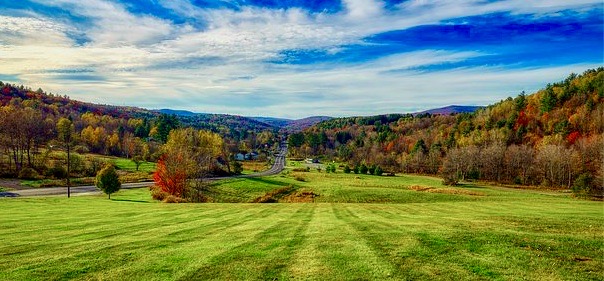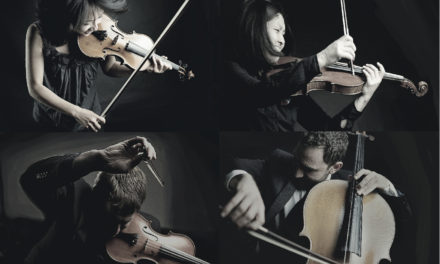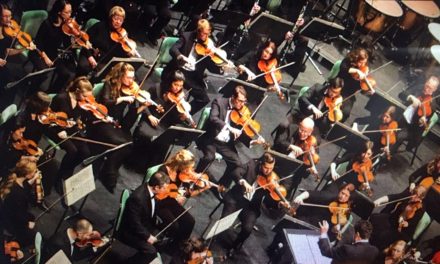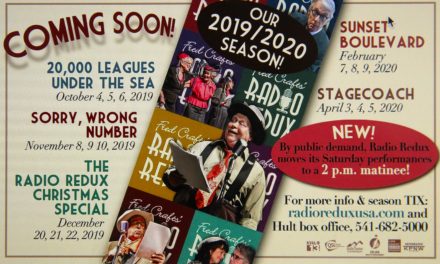By Daniel Buckwalter
It is hard to remember sometimes all the rich cultural fabrics that have layered the musical history in this country.
We tend, it seems, to segregate our minds to one or two genres because there is so much to consume, but each genre builds on the other to connect us to a vast collection of material that is pure enjoyment to wade through.
The Delgani String Quartet stitched together some of the threads from more than a century of American music with a program titled Pieces of America.
From folk to experimental, classical to the modernistic movements and the vibrancy of millennial compositions, Delgani — with its standard elegance intact, even during a pandemic — performed in front of a small audience and in a live-stream concert Sunday at the Christian Science Church in Eugene.
And American composers received a piece of their just due.
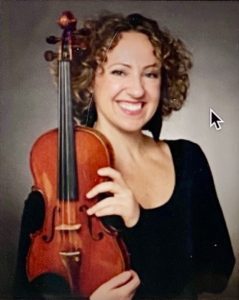
Guest violinist Nelly Kovalev substituted for Jannie Wei in the March performances of Pieces of America.
The quartet — violinists Wyatt True and Nelly Kovalev (subbing for Jannie Wei, who gave birth in February to her and True’s second child), violist Kimberlee Uwate and cellist Eric Alterman — touched on the vignettes of nine composers who either set the foundations of American music or who continue today to expand on them.
This group includes men and women from the late 1800s to the present day.
In the early years, people like George Whitefield Chadwick, Charles Ives and Amy Beech were among the first to gain a national and European attention. They were based in the New England area, primarily Boston, and they may have known each other. Their works may have had some influence on each other.
Beech is an interesting story in that she was one of the first American composers to earn acclaim without the benefit of European training. Her Gaelic Symphony, premiered in 1896 by the Boston Symphony Orchestra, was the first symphony composed and published by a woman. Additionally, she traveled throughout this country and Germany as a pianist, winning accolades for her own compositions.
The second segment of the concert featured short pieces from Philip Glass (still alive at age 84), Elliot Carter, Ruth Crawford Seeger and John Cage.
This is the start of the growth of American art music to more modernistic compositions in the early to mid-20th century, or as one historical source notes of Carter, combining European modernism with American “ultra-modernism.”
The results were engaging as the concert moved into intermission.
The concert’s third segment opened with a piece from 38-year-old Caroline Shaw, who won the Pulitzer Prize in 2013 for an a cappella piece called Partita for 8 Voices.
Delgani played a small selection from a 2019 album devoted to her work titled Orange, and in it I could taste the often messy frustration of peeling an orange and savoring its sweet taste.
Next up was the lush work of Howard Hanson, a champion of American classical music who provided opportunities for commissioning and performing American music. He was the director for 40 years of the Eastman School of Music and died in 1981 at age 84.
There was still an encore, a small movement from a quartet composed by a man Hanson admired, William Grant Still, born in 1895 in Mississippi.
Still, schooled in composition at Oberlin College in Ohio, was a well-known Black composer and conductor in addition to being the first Black man to conduct a professional symphony orchestra in the United States. He wrote for bandleaders, some jazz and opera, but he was best known for his 1931 Afro-American Symphony.
It was a fitting end to the concert, because everyone needs to be at the table.
Like every other arts group, Delgani has experimented with and learned streaming technology during this pandemic. In October’s production there was only one camera.
For this third concert, there are three cameras, and what I like about the stream is that the camera shots do not bounce quickly from one musician to another. A single camera shot can stay with one or two musicians through the duration of a phrase he or she has, and even a little longer.
That allows the viewer, I think, to not be distracted and to absorb the music better. I enjoyed it.
Bravo to Delgani String Quartet. I hope to see the group in person soon. I miss the standing ovations from a full house.
Pieces of America
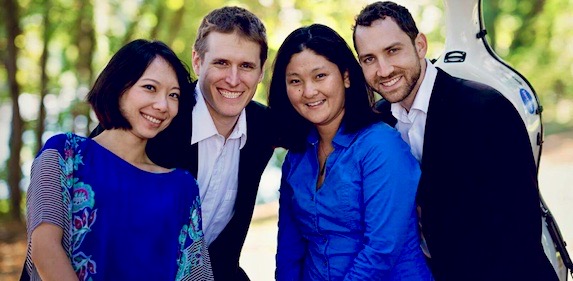
Above: The Delgani String Quartet includes (left to right) violinists Jannie Wei and Wyatt True, violist Kimberlee Uwate, and cellist Eric Alterman.

